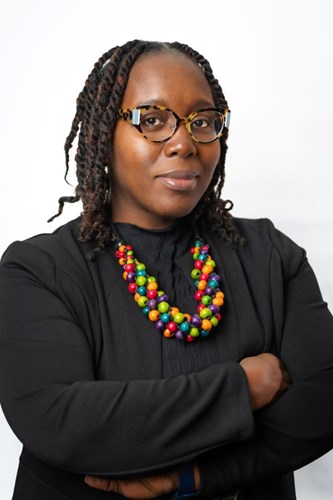Diversity and inclusion are the key to addressing the construction skills gap
Nadine Pemberton Jn Baptiste, CITB Executive Director of Legal, Governance & Compliance, explains why diversity is not a challenge to be managed - it’s the solution to the skills gap…
I recently opened the Inspiring Change Awards Ceremony and Conference – an important event that not only celebrates the strides we’ve made in fairness, inclusion and respect, but also reaffirms our collective commitment to continue shaping a more equitable construction and built environment industry.
It’s important we ensure people in the workplace feel respected and understood. Putting my skills hat on, the only ways we can truly address the workforce gap is firstly by attracting more people from more diverse backgrounds to careers in construction – those who might not have traditionally joined the industry – and by supporting their growth through training and skills development and very importantly, retaining their talent. Recruiting and retaining more people from different backgrounds is vital to the development of a more diverse workforce.
The construction industry is facing a significant demand for skilled workers. According to CITB’s Construction Workforce Outlook 2025-29, we need 47,860 additional workers annually to meet demand. This isn’t just about numbers; it’s about who is joining our industry and how we’re supporting them once they arrive.
This made me think about my own journey. I’m a very proud Yorkshire lass, born and bred in Bradford. I’m Caribbean, 100% St Kitts and Nevis, and 100% British. My grandparents came to England from Nevis in the 1950s looking for what they considered would be a better life for themselves and their children. I’m not quite sure they ever believed the streets over here were paved with gold, but they were looking for opportunity, choice, and a different life. And that’s what they got, that’s what I have benefited from.
Growing up, my friends were white, they were from Bangladesh, Pakistan, India. Their families were from the Ukraine, from Ireland, from many places. I was often the only Black person in my friend circles in my school years but that meant that I felt comfortable around everyone. I was used to difference in attitudes, home lives, favourite dinners, cultures; and I loved it. I didn’t know that these were the building blocks of my fundamental belief in Fairness, Inclusion, and Respect (FIR), but they were.
Of course, we hear a lot about the lack of diversity in construction, and it’s true there is plenty more to do, but I think it’s important to take stock of the progress that we are making together as an industry. For example, the number of construction employees from global majority backgrounds has increased by 2% over the last 3 years. Similarly, 1,450 women started a construction apprenticeship in 2018-19, but this jumped to 2,420 in 2023-24.
An increase is always great, but it must be sustained and there is still a huge amount of progress to be made.
Across the industry, we need to establish a culture that ensures it seeks to understand and meet the needs of people of all backgrounds. For example, women’s participation in the industry can, unfortunately, be impacted by a lack of understanding about the effects of pregnancy, peri menopause, the menopause, menstrual health, and related conditions, making it difficult for women to be open about what they experience and what it means for them in the workplace.
We must also establish a new norm by demonstrating that we can retain people from different backgrounds by offering flexible workplaces and inclusive working conditions. If people don’t have access to supportive workplaces, their career progression will be slower. Let’s ask the people from diverse backgrounds who are thriving in the construction industry what has helped them and what may have held them back. Find the good practice, replicate it, make it the norm – that’s the real start of cultural change, and that change will create an environment where everyone can flourish and grow.
Employers in the industry are often looking for ways to create an inclusive workplace to help attract new talent, ensure staff are happy and committed, and improve productivity. CITB’s Industry Impact Fund is supporting them to do so. Last year we provided over £850,000 to a DE&I commission, led by the Supply Chain Sustainability School, to help recruit more people in the industry, with a particular focus on people from diverse backgrounds, and improve retention across the industry.
Every individual brings a unique blend of background, education, interests, and lived experience. These differences fuel innovation. When teams are diverse, they generate richer ideas, challenge assumptions, and build solutions that reflect the communities they serve. As the Supply Chain Sustainability School’s Fairness, Inclusion, and Respect Programme puts it: “We all bring unique and valuable ideas to the table.”
Diversity is not a challenge to be managed; it’s the solution to the skills gap. By creating inclusive pathways into construction and supportive and inclusive working environments that create spaces for people from all backgrounds, we build a stronger, more resilient workforce.
